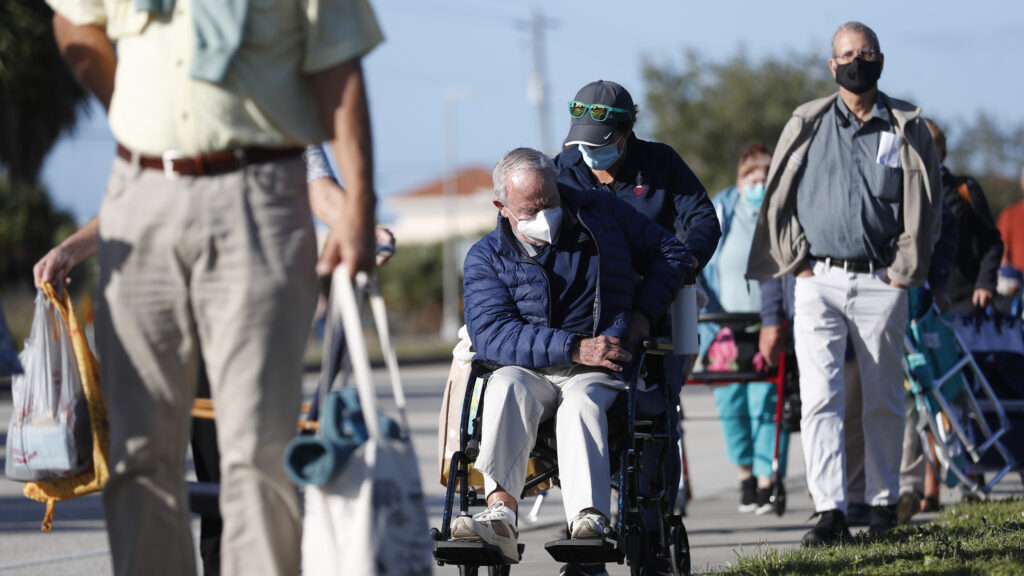With the election of Rep. Mike Johnson as speaker of the House, the urgent and important work of passing appropriations and vital national security legislation is now advancing. But it is also the time to address additional important issues affecting the well-being of Americans, such as one highlighted during the Covid-19 pandemic as well as recent wildfires and hurricanes: the care and support for America’s most vulnerable. Leading health organizations and experts in geriatrics, pediatrics, and the care of the disabled have long cited the need to address the health consequences of these vulnerable groups when disasters disrupt their care.
Congress addressed the unique needs of older adults with the creation of the National Advisory Committee on Seniors and Disasters (NACSD) as part of the 2018 Pandemic and All-Hazards Preparedness and Advancing Innovation Act. This committee, (on which Sue Anne is a full member and Michael a subcommittee member), held its first meeting in March 2022 and issued its initial set of recommendations for improving elder disaster care in May and September of 2023.
advertisement
But this committee will be suspended indefinitely unless Congress reauthorizes it before Nov. 17, leaving its work of addressing the care of older adults unfinished. Without similar reauthorizing language, NACSD’s two sister committees, the National Advisory Committee on Individuals with Disabilities and Disasters and the National Advisory Committee for Children and Disasters, will also be suspended at the same time.
These committees provide the secretary of Health and Human Services with recommendations and guidance to enhance preparedness, response, and recovery activities specific to the public health and medical needs of vulnerable Americans during disasters and public health emergencies. The current Continuing Resolution extends the existence of these committees for 45 days. But unless Congress grants permanent reauthorization the important work the committees already do will end — and the work they have yet to do may never happen.
Since Congress established the National Advisory Committee for Children and Disasters in 2013, it has been an exemplar for how nongovernmental experts can contribute to national health care policy. Among other things, the committee helped establish Pediatric Disaster Care Centers of Excellence, which were critical during the pandemic; they provided specific guidance and assistance to health care providers caring for children during Covid-19. Hospitals and health care centers were better prepared to care for children during the pandemic because these centers were operating. They have also made great progress in creating and instituting pediatric-focused hazard vulnerability assessments, surge exercises, toolkits for children with special needs, and mental health resources.
advertisement
Unfortunately, there was not enough time to get the National Advisory Committee on Seniors and Disasters operating before the onset of the pandemic. The Covid-19 public health emergency demonstrated the desperate need for expert guidance for the elderly. More than 76% of the 1.4 million Covid-19 deaths have occurred in people over 65, and over 200,000 deaths occurred among residents of long-term care facilities.
One of the first NACSD recommendations was to establish Disaster Care Centers of Excellence for Older Adults. These centers would provide real-time guidance on specific elder care issues and support to long-term care facilities during disasters, as well as creating training and preparedness programs before disasters or public health emergencies occur.
But now this important initiative is at risk before its work can even truly begin. Suspending the work of this committee would delay the drafting of the guidance supporting the creation of Disaster Care Centers of Excellence by months or even years. The result will almost certainly be older adults suffering excess morbidity and mortality in future disasters. Nursing homes and long-term care facilities must be prepared and resilient in the face of potentially catastrophic events. The continued work of this committee will ensure that those who provide health care for older adults are ready for the next public health emergency.
The voices of older adults, children, and the disabled must be heard — and more importantly, their health and health care during disasters effectively addressed. Congress should remember those who are at the greatest risk for suffering and death during pandemics, wildfires, floods, hurricanes, and other catastrophes. It is urgent to reauthorize the Committees for Seniors, Children and the Disabled. We urge Congress to do so in any upcoming legislation or continuing resolution. Congress should ensure that these committees can continue their important work and our most vulnerable Americans are not forgotten or left behind.
Robert Kadlec, M.D., is the former assistant secretary for preparedness and response at HHS. Sue Anne Bell, Ph.D., FNP-BC, is an assistant professor at the University of Michigan School of Nursing and served as a committee member of the NACSD. Michael Wasserman, M.D., CMD, is a geriatrician who served on the Infrastructure Workgroup for the NACSD.

